Retro Replay Review
Gameplay
Star Trader places you firmly in the captain’s chair of a modest merchant vessel, tasking you with the simple yet enthralling goal of accumulating one thousand credits before retiring in style. From the outset, every decision—from selecting profitable cargo runs to managing your ship’s dwindling fuel reserves—carries weight. The core loop of buying low at one starport and selling high at another is intuitive, but the real challenge emerges when you factor in real-time constraints on fuel consumption, delivery deadlines, and the ever-present risk of pirate attacks.
(HEY YOU!! We hope you enjoy! We try not to run ads. So basically, this is a very expensive hobby running this site. Please consider joining us for updates, forums, and more. Network w/ us to make some cash or friends while retro gaming, and you can win some free retro games for posting. Okay, carry on 👍)
Fuel management feels like walking a tightrope: sail too far for a high-paying contract and you risk stranding yourself in the void; play it safe, and you might miss out on lucrative deals. The game’s overhead expenses—ship upkeep, computer access fees, docking costs—add another strategic layer. Every credit you spend on maintenance is a credit not invested in future cargo runs, so the tension remains high long after your first few profitable trades.
Combat in Star Trader is refreshingly low-stakes yet adrenaline-pumping. Rather than a deep simulation, ship-to-ship battles resemble a gallery shooter, requiring swift aim and split-second decisions to escape or fight back. Damage from pirate cannons can be crippling, forcing you to divert funds for repairs or risk permanent career loss. This balance between shoot-‘em-up excitement and the financial realities of maintaining a starship keeps the gameplay loop engaging and varied.
Finally, Star Trader’s real-time nature gives each in-port transaction and interstellar jump a sense of urgency you won’t find in turn-based sims. While browsing cargo manifests at a starport, you’re acutely aware that both your fuel gauge and delivery clock are ticking down. The risk of running out of fuel mid-jump adds palpable stakes to every decision, ensuring that no trading trip feels routine.
Graphics
Graphically, Star Trader embraces a functional, retro-inspired aesthetic that prioritizes clarity over spectacle. The interface is divided into three distinct zones: a viewport showing the starfield or enemy ships, a status panel with vital statistics (credits, fuel, repair costs, date), and a graphical menu bar for navigation. This clean segmentation ensures you always know exactly where to look for information, even in the heat of battle or during time-sensitive trades.
While you won’t find photorealistic starfields or flashy particle effects here, the simple line art and iconography have their own charm. Ships, ports, and celestial bodies are rendered with crisp outlines and limited color palettes, evoking classic 1980s space sims. The minimal animations—sparks from laser hits, fuel scooping beams—are subtle but effective, reinforcing the sense of piloting a living, breathing vessel across the galaxy.
The menu system deserves special mention for its intuitive design. Buying and selling cargo, checking reputation bonuses, and accessing repair options require only a few key presses. Tooltips and on-screen prompts guide new players through each step, minimizing the learning curve without dumbing down the mechanics. Even if you’re not a graphics purist, the streamlined UI facilitates quick decisions and seamless transitions between trading, flying, and fighting.
In sum, Star Trader’s visual presentation may not win awards for artistry, but it excels in delivering clear, information-rich displays that enhance rather than distract from the economic gameplay. Its retro style is a deliberate choice that complements the game’s old-school market simulation roots, making it approachable for veteran space traders and newcomers alike.
Story
At its heart, Star Trader tells a classic rags-to-riches tale set against the backdrop of a sprawling interstellar economy. You begin as a small-time merchant with little more than a beat-up freighter and a handful of credits. Your goal—to amass one thousand credits and retire to a peaceful life—is straightforward yet endlessly compelling, as each new trade, smuggling run, or pirate skirmish builds your personal legend.
Despite the game’s emphasis on numbers and profit margins, the narrative unfolds organically through your actions. Help a desperate colony by delivering emergency rations on time and gain a reputation boost that unlocks higher fees. Decide to siphon fuel from a red giant or swipe unguarded cargo for a quick credit infusion, and you’ll earn a reputation for opportunism—along with the risks that reputation brings. These emergent story strands give your journey a sense of agency and consequence.
Pirate encounters add a thrilling dimension to your merchant life, punctuating the steady rhythm of trade runs with moments of high tension. Surviving a particularly vicious ambush can feel like an epic victory, especially when you limp into the next starport battered but financially intact. Conversely, a single misstep—failing to evade a pirate salvos or miscalculating fuel needs—can abruptly end your career, reminding you that space commerce is as perilous as it is profitable.
Ultimately, the story of Star Trader isn’t a fixed narrative penned by writers, but a sandbox tale shaped by your triumphs and mistakes. Whether you become a celebrated interstellar tycoon or a cautionary spacefarer whose career ended too soon, the game weaves its economic systems into a personal saga that’s uniquely yours.
Overall Experience
Star Trader delivers a compelling blend of strategic trading, real-time tension, and shoot-‘em-up action that few economic simulators can match. Its learning curve rewards patience and experimentation: mastering fuel consumption, timing deliveries, and fine-tuning your combat reflexes all contribute to the satisfying sense of progression. The straightforward interface and clear visual feedback ensure that you’re always engaged with the core loop of buy, sell, and survive.
While the graphics are intentionally minimalist, they serve the gameplay exceptionally well. If you’re looking for a narrative-driven space opera with cutscenes and voice acting, this isn’t it—but if you want a pure, numbers-driven economy simulator with genuine stakes, Star Trader has you covered. The lack of elaborate visuals and cutscenes actually enhances the immersion, as your mind fills in the details of a living, breathing galaxy driven by commerce.
The emergent storytelling—shaped by your choice to honor contracts, dodge pirates, or engage in borderline illicit activities—keeps each play session fresh. No two careers play out the same, and the tension of near-miss fuel shortages or pirate dogfights maintains adrenaline levels throughout your captaincy. Even after retiring once, many players find themselves restarting with new strategies, determined to see how different trading routes or risk profiles affect their success.
In conclusion, Star Trader excels at what it sets out to do: offering an addictive, risk-reward focused economic sim wrapped in the trappings of a starship adventure. Its elegant UI, real-time challenges, and emergent narrative ensure that you’ll be plotting new courses through the cosmos long after your first career ends. For aspiring space merchants seeking a mix of strategy and action, Star Trader is a stellar choice.
 Retro Replay Retro Replay gaming reviews, news, emulation, geek stuff and more!
Retro Replay Retro Replay gaming reviews, news, emulation, geek stuff and more!
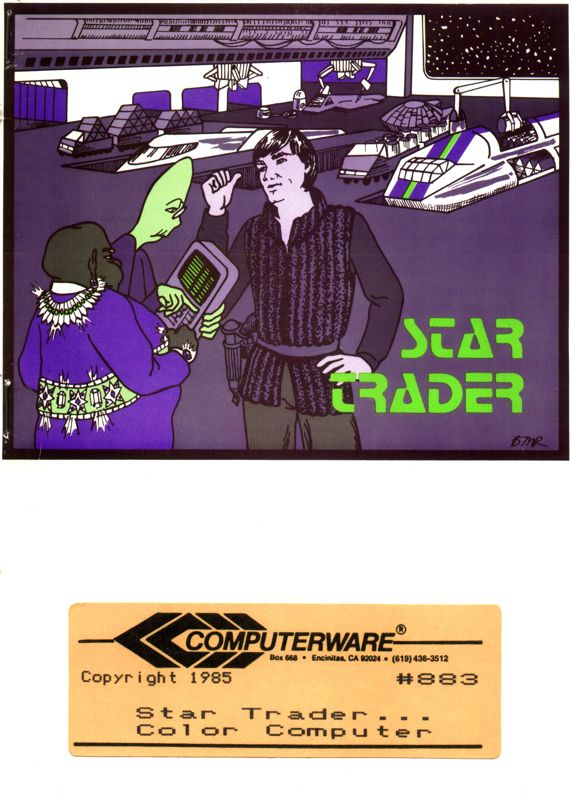

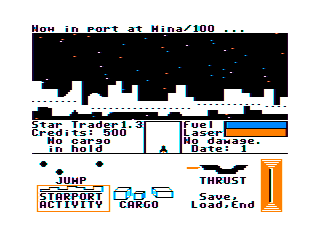
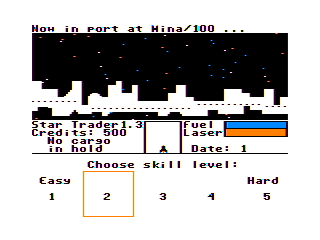
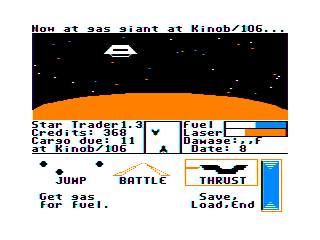
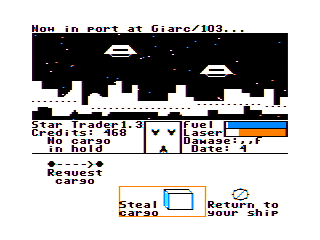

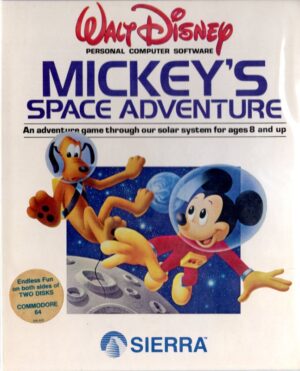

Reviews
There are no reviews yet.